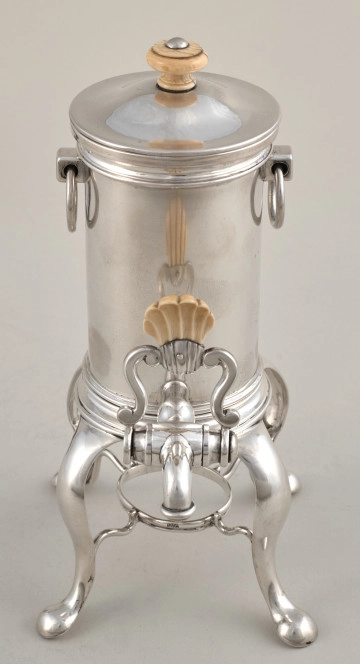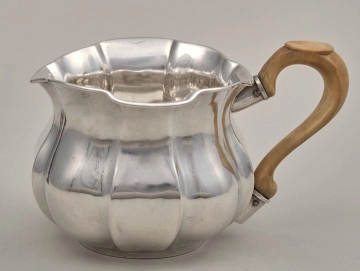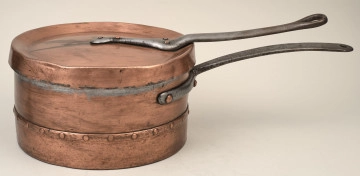
Teapot
19th (?) century
Castle Museum in Łańcut
Part of the collection: Orient
Teapot made of dark brown stoneware, known as red stoneware. Spherical body, decorated at the top with a band of geometric pattern, with a lid inserted into the inner rim of the vessel. The teapot has an S-shaped spout, on the other side of the vessel there is a bowed handle. The lid is flat, made of stoneware, with a handle in the shape of a Fo dog (Buddha’s lion) figure. The lid is attached to the spout and handle by a chain made of gilded metal in an unusual and very interesting way – the Fo dog figurine has a metal collar and the chain is attached to it. Red stoneware is the name for a group of products made from fine-grained clay; they are impervious, hard and well-baked, and do not soak during use. Such vessels were brought with tea by the East India Companies to Europe and were used for brewing tea. Similar vessels began to be made in the 17th century in the Netherlands and England, and in 1707 Johann Friedrich Bóttger managed to achieve this effect by baking pottery for King of Saxony, Augustus II the Strong. The thriving Dutch manufacturing centre was Delft. Teapot from China, Yixing, Kiangsu province, dating to the 17th/18th century.

unknown
19th (?) century
Castle Museum in Łańcut

unknown
19th (?) century
Castle Museum in Łańcut

unknown
19th / 20th century
Castle Museum in Łańcut
DISCOVER this TOPIC
National Museum in Lublin
DISCOVER this PATH
Educational path
0/500

We use cookies to make it easier for you to use our website and for statistical purposes. You can manage cookies by changing the settings of your web browser. More information in the Privacy Policy.
We use cookies to make it easier for you to use our website and for statistical purposes. You can manage cookies by changing the settings of your web browser. More information in the Privacy Policy.
Manage cookies:
This type of cookies is necessary for the website to function. You can change your browser settings to block them, but then the website will not work properly.
WYMAGANE
They are used to measure user engagement and generate statistics about the website to better understand how it is used. If you block this type of cookies, we will not be able to collect information about the use of the website and we will not be able to monitor its performance.